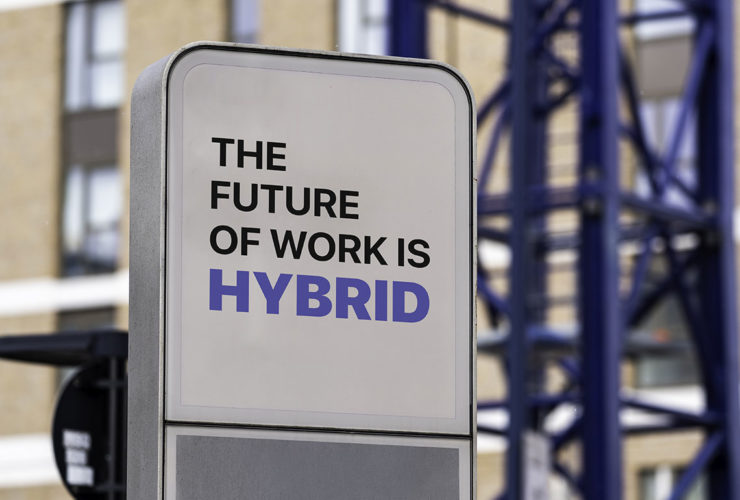A 2014 study by ERE Media found that hiring managers only give recruiters a C-plus grade for their effectiveness in filling open positions with talented employees.
How do hiring managers feel in 2017? We decided to poll IT hiring managers we know—members of our eTeki technical panel and members of our network—to get their insights about the quality of the technical hiring process and the effectiveness of technical recruiters. The people we polled were:
Phani Shekhar Bhandaru
Richard Bullard
Awanish Golwara
Cesar Jimenez
Bhanu Kishore Mandava
Bala Nemani
Amrut Patil
Manas Ranjan
Heath Cory Renfrow
Deepti Vernal
Question 1: As a hiring manager, what are the biggest problems or pain points that YOU face during the technical hiring process?
Renfrow: The biggest problem I see is when scenario-based interview questions are used to gauge experience. To truly determine technical experience, we need technical interviewers to ask behavioral-based questions.
Bullard: The biggest problem I’ve had is finding qualified professionals to interview. Recruiters rarely understand mainframe requirements (e.g. z/OS is a language, right?). I had to read many resumes to select those I determined were fit to interview. Many had no discernable mainframe expertise on their resumes. In other words, much of the technical hiring process was a waste of time for me—and I was already overloaded with my own tasks.
Ranjan: Sometimes it’s very difficult to judge a candidate. So many candidates are unable to write code in pen and paper. As a result, interviewers can be uncertain whether the candidates really code in day-to-day life or not.
Golwara: Filtering the right candidates from a large list is the challenge.
Nemani: Instead of receiving qualified and shortlisted candidates, we receive a pile of resumes that are not relevant or not qualified.
Bhandaru: Choosing the right technical candidate is difficult.
Jimenez: One challenge is validating whether candidates have the technical experience that they claim to have. A second is working with all of the decision-makers to make time for interviews.
Patil: We need to find a way to assess technical knowledge in a better way.
Takeaways:
- Selecting the right candidate—one who has the necessary technical skills and experience to succeed at the job—is the top challenge.
- Effectively validating technical experience is critical for selecting consistently selecting the right candidate.
- Using behavioral-based interview questions, rather than scenario-based questions, is important for validating technical experience.
- Many employers can stand to improve their sourcing and screening of technical candidates.
Question 2: As a hiring manager, what are the biggest problems that you face when working with technical recruiters?
Jimenez: They often don’t understand the technical requirements for the job we’re looking to fill.
Mandava: Technical recruiters often don’t assess candidates using the proper requirements.
Nemani: Recruiters need to understand the job requirements and learn about the technical environment. Without understanding the job/role, it is difficult to effectively match candidates with it. Also, many “technical” recruiters are NOT technical.
Patil: They don’t have in-depth technical knowledge.
Verma: Many don’t have much technical knowledge.
Ranjan: While technical recruiters do a good job of finding the technical terms for which they are assigned, they don’t recognize when candidates use shortened versions or abbreviations. This can cause us to lose good, qualified candidates.
Bullard: The two biggest challenges were that most technical recruiters were inexperienced with understanding mainframe technology terms and requirements and had serious issues with the English language—both verbal and written.
Renfrow: They often lack the necessary technical knowledge to effectively weed out unqualified candidates.
Takeaways:
- Hiring managers are often frustrated by technical recruiters’ lack of technical knowledge, finding that it can lead to ineffective candidate sourcing, screening and assessment.
- Either the entire recruiting industry changes its approach and requires technical recruiters to have technical experience, or technical recruiters have to do more to understand the job and the environment.
- To understand the job and the environment, technical recruiters need to work better with hiring managers. They need to work with hiring managers throughout the technical recruiting lifecycle to make necessary adjustments along the way. This begins with having more intensive, more strategic intake sessions. They can’t be afraid to ask questions, such as to learn about where potential candidates gather (online, at conferences, etc.) so they can properly source them. And they shouldn’t be ashamed to say they don’t understand a technical term or acronym. Technology is a language, and hiring managers shouldn’t expect technical recruiters to speak it at the same level as they do. But they do and should expect technical recruiters to find them quality candidates who meet the technical requirements for the job.
- If recruiters and hiring managers at a company are having a difficult time working together, it’s important to respect each other’s professional boundaries and to find and use technology tools that help fill the gap.
Question 3: What overall grade would you give your technical hiring process, and why?
Renfrow: I’d give our process an eight on scale of one to 10, and that’s because we use background research and use technical experts to assess technical qualifications.
Bullard: D-minus. The best staff I could hire was pretty much inadequate, lacking requisite experience and skills. I felt I would be wasting my time to replace the worst staff members and, as the technical solution architect, I had no time available to train those who could be trainable. It was a serious train wreck.
Mandava: For ability to assess technical knowledge, I’d rate our process five out of five.
Nemani: Poor to average. Problems include poor job descriptions from the hiring managers/team, lack of understanding about the job from the recruiter, and poor screening techniques from the sourcing/recruiting team. Overall hiring quality is poor, and it takes too long to bring someone onboard.
Jimenez: I’d give our process a C. Managers are exhausted during the interview process, and they always have the challenge of losing candidates to other opportunities because the interview process takes too long.
Takeaways:
- Although some time has passed since the ERE hiring manager survey findings, many hiring managers remain dissatisfied with recruiters and their hiring results.
- Properly assessing required technical qualifications and completing the hiring process in an efficient amount of time are both keys to achieve hiring manager satisfaction with the technical hiring process.







